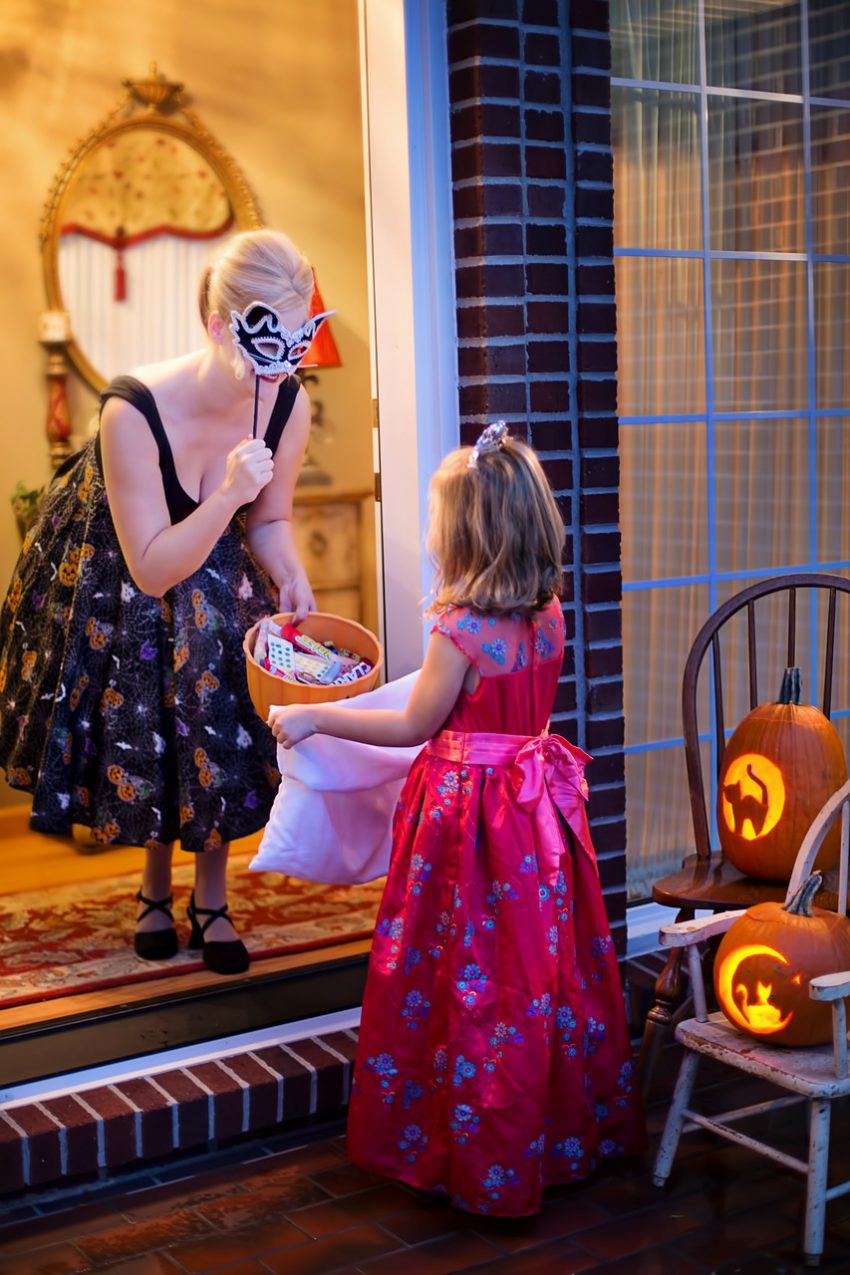Trick-or-Treat Be With You!
I do ministry on the margins with what I call “queer pilgrims.” Like me, they are one or more of the various flavors of queer, but unlike me they aren’t Christian anymore and have—whether voluntarily or through exile—left their faith community.
One of the perennial questions I get from such pilgrims is about the celebration of Halloween. Many Christians have been told we cannot celebrate it, either because it is demonic (unsafe!), because its origins are (arguably) from pagan sources (not Christian, therefore bad!), or that it’s only okay to celebrate it in the Americanist consumerist kid-centered candy sense (it’s meaningless, so it’s okay!).
What do I think? When I give my answer, folks are surprised to hear me say I believe that Halloween is, in fact, the most Christian holiday that Americans celebrate. To explain why, let’s study the Walk to Emmaus in Luke 24:13-48. For the sake of teaching, I will take liberties to render it to the question at hand, jumbling the verses around a bit:
That same day two soccer moms (followers of Jesus) who lived next door to each other, and some other neighbors were sitting out on their front porches getting ready to dole out Halloween candy. As they strung their cotton cobwebs over the hand railings, they were talking about this and that.
Suddenly, Jesus himself appeared among them. But God kept them from recognizing him.
“Trick or Treat,” he said. But the whole group was startled and frightened, thinking they were really seeing a ghost!
“What, too soon?” he asked. “Why are you frightened? Why are your hearts filled with doubt? I thought that today of all days I could have shown you the truth of who I am. I mean, I know it’s gruesome, but look at my hands. Look at my feet. You can see that it’s really me. Touch me and make sure that I am not a ghost, because ghosts don’t have bodies, as you see that I do.” As he spoke, he showed them his hands and his feet.
But they saw the color of his skin, and the unimaginative store-bought nature of his costume, and they suspected him to be one of those “bussed-in” kids. Ketchup, they thought. Eye-shadow bruises. They frowned and wished he would go away.
Then he asked them, “Seriously, though, do you have anything here to eat?” Reluctantly, they gave him a single fun-size Snickers and he ate it as they watched.
Then he said, “When I was with you before, we talked about Scripture. That bit about, ‘the stranger that dwelleth with you shall be unto you as one born among you, and thou shalt love him as thyself; for ye were strangers in the land of Egypt: I am the Lord your God.’ Remember that?
“And that other bit about how the Christ would suffer and die and rise from the dead on the third day?
“Well, that happened.
“And so did the sequel: that this message would be proclaimed in the authority of the Messiah’s name to all the nations, beginning in Jerusalem: ‘There is forgiveness of sins for all who repent.’ You are witnesses of all these things.”
And suddenly they recognized him.
Halloween is an opportunity for Christian Spiritual Practice
On this day, your home is visited by strangers. Maybe not total strangers. Maybe just people disguised to look like strangers despite the high likelihood that they’re secretly your neighbors.
They come to your house, knock on your door, and beg for food.
And you’re expected to give it to them.
On no other day of the year is it so totally acceptable for you to go and randomly knock on your neighbor’s door. Sadly, only on this day can you expect to get kindness when you do, instead of wariness.
The whole interaction happens at the threshold. The stranger does not become part of the family in the home. The family does not go out following the stranger on their journey. No one has social power over the other.
Christ in the Stranger’s Guise
It is said that “often goes the Christ in the stranger’s guise.” What if this Halloween we deliberately treated everyone who came to our door as we would wish to treat the risen Christ? To see not a stranger but our hungry neighbor. To accept them just as they present themselves to us, rather than insisting we know better who they are underneath. To feed that specter at the threshold, instead of berate it for not fitting in well enough to stay.
Halloween is an opportunity to recognize Jesus. May we treat it as practice for how to welcome him on all other days. And may Christ see what we do to these pilgrims, the least of these most liminal walking ones, and reckon it as righteousness.
A portion of this writing was shared earlier as a personal blog post.
 Kate Davoli ’23 (they/them) is the chair of LAMP: LGBTQIA+ Affirming Ministries of Pittsburgh, a member of the national board of directors of More Light Presbyterians, and a Presbyterian elder and lay preacher. They teach missional discernment to fellow students, ministers, and faith-based organizations.
Kate Davoli ’23 (they/them) is the chair of LAMP: LGBTQIA+ Affirming Ministries of Pittsburgh, a member of the national board of directors of More Light Presbyterians, and a Presbyterian elder and lay preacher. They teach missional discernment to fellow students, ministers, and faith-based organizations.

